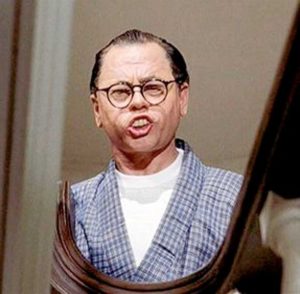April 16, 2008


 I missed this NPR report a couple of weeks ago, about the impact of the character Long Duk Dong from the 1980s hit movie, "16 Candles." I had heard a promo for the report while driving but got home before it came on.
I finally went back to check it out and it's worth hearing.
The link to the report is at the top of the page; the text on the page is the report's transcript. Be sure to check out the extra interview clip with Gedde Watanabe, the Japanese American actor who played "the Donger" -- he doesn't really have a clue, unfortunately. And check out the comic that's included, "Donger and Me."
I missed this NPR report a couple of weeks ago, about the impact of the character Long Duk Dong from the 1980s hit movie, "16 Candles." I had heard a promo for the report while driving but got home before it came on.
I finally went back to check it out and it's worth hearing.
The link to the report is at the top of the page; the text on the page is the report's transcript. Be sure to check out the extra interview clip with Gedde Watanabe, the Japanese American actor who played "the Donger" -- he doesn't really have a clue, unfortunately. And check out the comic that's included, "Donger and Me."
 Audrey Hepburn, one of the great, classic actresses of Hollywood of the '50s and '60s, may have died in 1993, but she's alive and well in American pop culture. Her name, and the 1961 film with which her face is most associated, "Breakfast at Tiffany's," came up in conversation a couple of weeks ago, and coincidentally, a TV series' plot later that week involved three women dressed as Hepburn's character from "Tiffany's," Holly Golightly, robbing a bank with her trademark sunglasses hiding their identity.
This week, The Gap began airing a pretty cool TV commercial that takes a Hepburn dance sequence from her 1957 musical co-starring Fred Astaire, "Funny Face," and sets her moves to AC-DC's "Back in Black." The commercial is pushing the retailer's new line of skinny black pants. Hepburn's character, a Greenwich Village beatnik who becomes a Paris model, is wearing hip skinny black pants in the dance scene.
Audrey Hepburn, one of the great, classic actresses of Hollywood of the '50s and '60s, may have died in 1993, but she's alive and well in American pop culture. Her name, and the 1961 film with which her face is most associated, "Breakfast at Tiffany's," came up in conversation a couple of weeks ago, and coincidentally, a TV series' plot later that week involved three women dressed as Hepburn's character from "Tiffany's," Holly Golightly, robbing a bank with her trademark sunglasses hiding their identity.
This week, The Gap began airing a pretty cool TV commercial that takes a Hepburn dance sequence from her 1957 musical co-starring Fred Astaire, "Funny Face," and sets her moves to AC-DC's "Back in Black." The commercial is pushing the retailer's new line of skinny black pants. Hepburn's character, a Greenwich Village beatnik who becomes a Paris model, is wearing hip skinny black pants in the dance scene.
This website uses cookies to improve your experience. We'll assume you're ok with this, but you can opt-out if you wish. Read More


